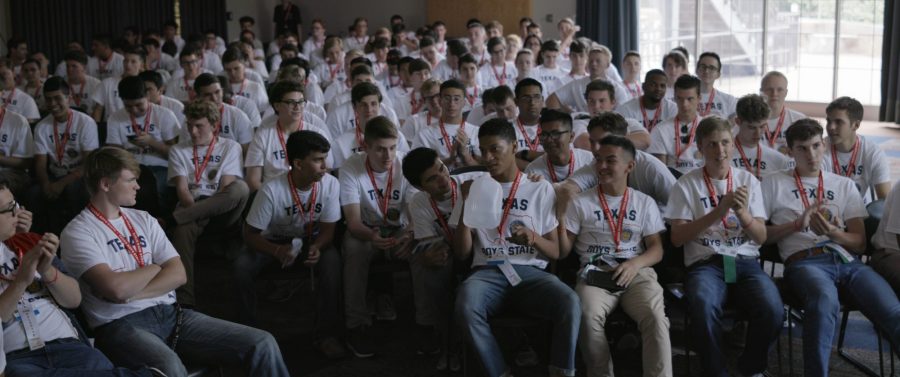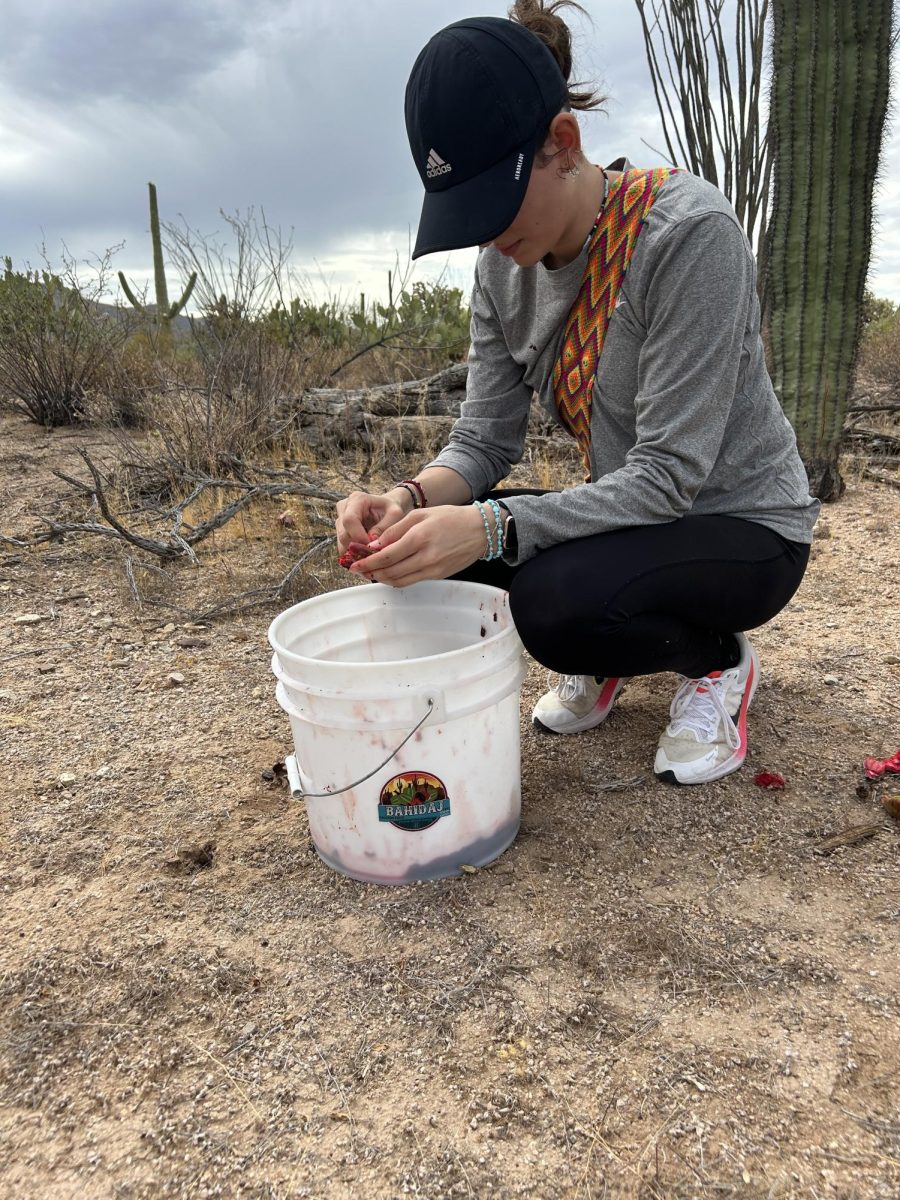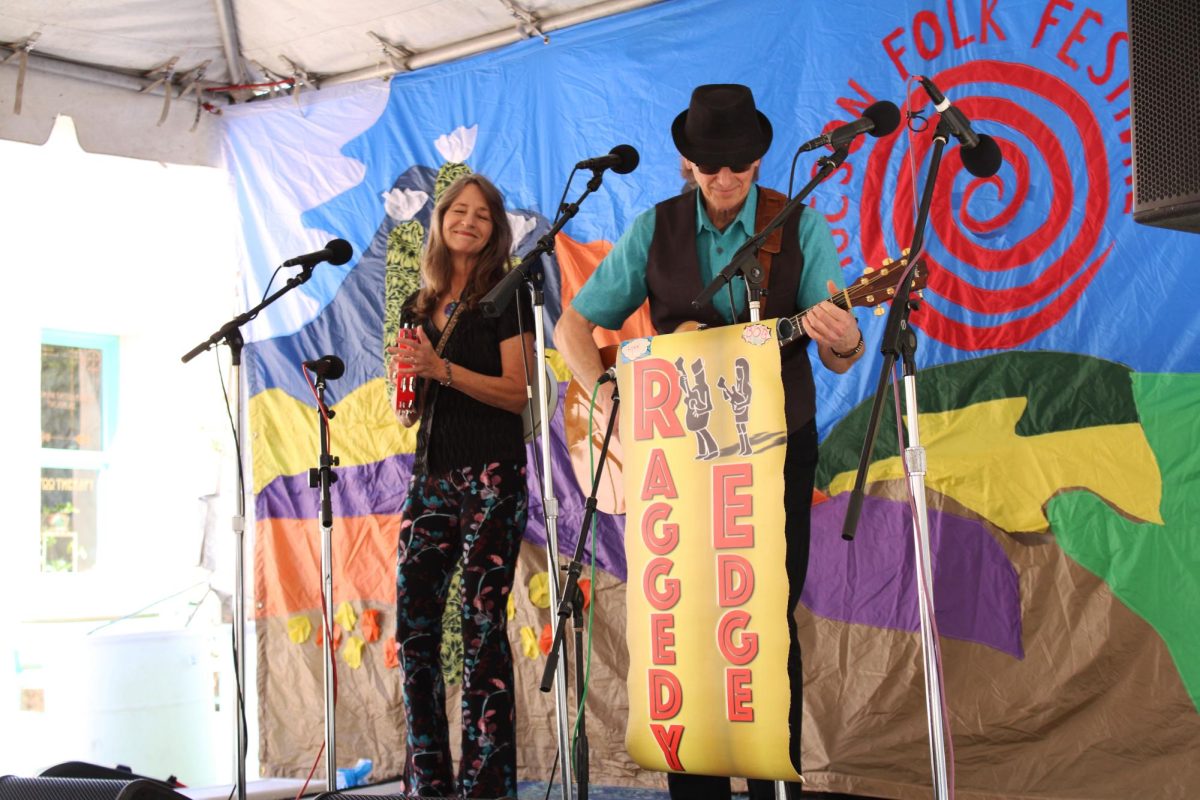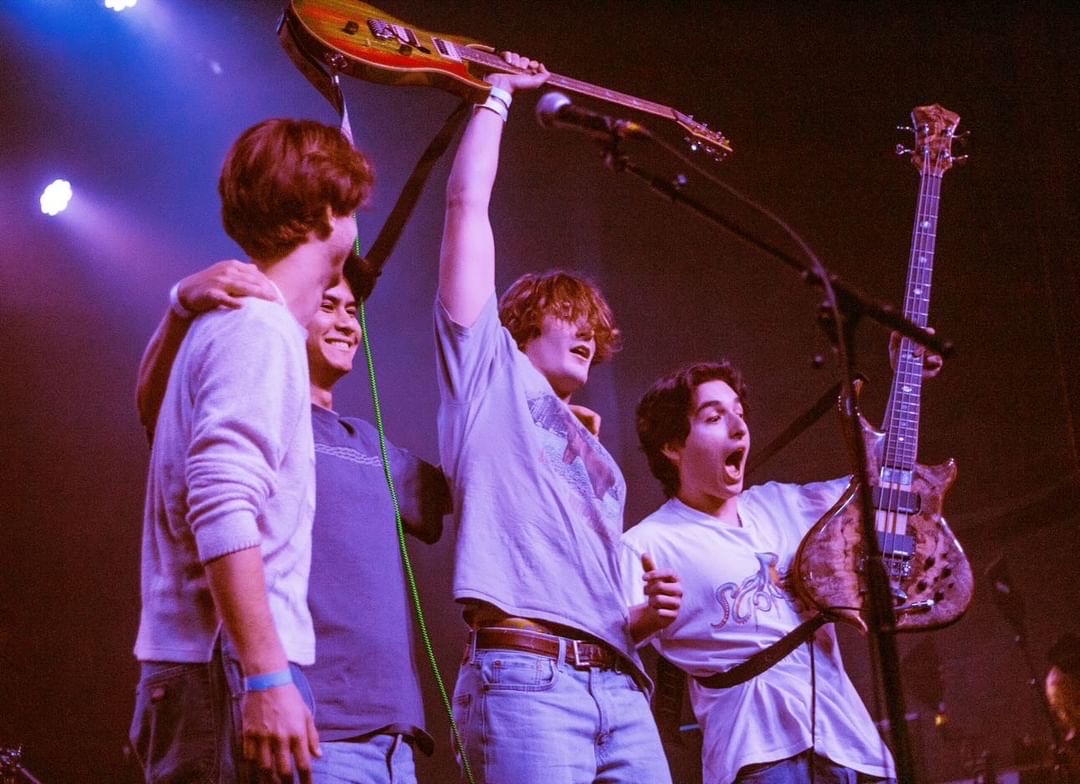While the availability of internships in many industries have decreased, Pablo Perez, a University of Arizona School of Film and Television senior, has been employed in a coveted place at the popular independent entertainment company A24. The Daily Wildcat sat down with Perez to talk about his experience, a new A24 documentary relevant to the upcoming election, the hallmarks of good script writing and more.
RELATED: UA filmmakers’ big night: I Dream in Widescreen 2020
Daily Wildcat: What are your favorite films? And what are your favorite A24 films?
Pablo Perez: I have a lot of favorite films. I guess like the ones that really have stuck with me a lot. Harry Potter was the earliest one I’ve ever seen in the theaters. “Harry Potter and the Sorcerer’s Stone” kind of gave me a lot of fantasy inspiration. But the film that I watched that kind of inspired me to write my first script in high school was called “A Beautiful Mind” directed by Ron Howard, based on true events. I more recently have been really interested in “IP Man” movies and “Coraline,” the stop-motion animated film. They’re just so versatile. They’re so interesting to watch all of them.
Oh, and my favorite A24 films — I’d have to say my top three are “Ladybird,” “Moonlight” and “Hereditary.” Although I have never really been too much of a fan of horror films just because it’s always been like, you know, here’s something trying to kill someone and then a person dies. But I really like “Moonlight.” It’s just so contemporary and so relatable with so many people nowadays and it’s very — it’s a very interesting triptych of a film. Teenage and adult years of a man going through [his] sexuality.
DW: How would you describe A24 as an entertainment company?
PP: Honestly, even if I wasn’t interning with them, they’re probably my most favorite studio in general. That’s including the big studios like Paramount and Disney and all that kind of stuff. Mainly just because what they have to offer is so unique. … They’re able to give filmmakers the chance for artistic freedom that no other studio for the most part would allow, maybe because we have so many interesting films that we have seen from A24. For a really extreme one, I guess you could say is “Midsommar,” which was so weird. But it was very interesting visually and storyline wise. And like I said, I’m not too much of a horror fan, but, like, I became so immersed as, like, “What’s going on?” It gives so much interesting artistic freedom especially for first-time filmmakers and actors who want to become directors like Jonah Hill.
DW: How did you get this internship?
PP: I am really grateful and really lucky. One of my professors sent out an email. I actually saw the email because I have friends who mentioned it. I was trying to think to myself, “How can I kind of stand out from all these people who are already applying so well?” So what I decided to do was, I had a lot, luckily, a lot of content. I’ve been working on a lot of promotional content documentaries, short films, all that stuff. … I gathered, all the material I had and I basically created this website, this online portfolio, where I put together a piece about me and I took two sections of the editing experience and my filmmaking experience. In the bottom I had samples of work I’ve done. I had a prior internship with a production studio here in Tucson. And luckily I was able to work on these really nice edits using their footage, and so I got really good editing practice, so I was able to showcase that as well. And I got the interview, which I thought was just as much as I was going to get, but the guy who was my [current] supervisor, Andrew, was very nice. And lo and behold I got the internship.
RELATED: Refreshing the repertoire: Developing a BIPOC and women viola composition database
DW: What is a normal week in your life as an intern at A24? How has COVID-19 affected your internship?
PP: This internship program has always been remote. And so with COVID-19 happening it hasn’t affected it too much for me. The reason COVID-19 has affected each program is that we would have the screenings at your local theaters, but now we can’t do that so it has to be virtual. Unfortunately, it has scaled down the experience a little bit, but overall, like a normal week, it would basically be like me checking my emails at least twice a day, obviously responding to them. Just contacting so many people. We have different partners, and so I check in with our different partners and local organizations about within your campus and they help us kind of promote the screening as well. I created from scratch a Facebook page because it’s the first time A24 is working with [the] UA. It’s hard to describe. There’s a lot that I do every week. But, I guess, to put it simply, it’s checking tons of emails, responding to a bunch of people, gathering research information for different clubs and organizations that can help us promote A24. It’s a lot of work, I am not going to lie, but it’s really, really cool and so far I don’t regret any of it.
DW: How were you assigned to “Boy’s State,” [a new A24 documentary]? Have you seen it? What do you think about it? What would you tell people?
PP: It was interesting. With this group of [interns] — which is the marketing side — all of the interns are assigned to the film. Basically, how it works is that they’re having these films coming out like “Boy’s State,” and I think later on we’ll have films that are coming out, which I can’t really say. We all work collaboratively. Right now we’re doing “Boy’s State” and we’ll have some more later on. I have seen the movie and, personally, I love documentaries. I guess there is somewhat of a stereotype that documentaries are kind of boring or whatever because we are so used to the blockbuster type of films, but “Boy’s State” is so funny. It is not a comedy. It is so funny because of how honest it is. The film is about 1,000-plus high schoolers who are put into a position where they have to create a government and so already in that a lot of things are going to go wrong. They’re all kind of political junkies, so they kind of know what they are doing in a way, but still, there are 17- [and] 18-year-olds kind of creating this government. It’s so relevant to what is going on right now because we are having the election. Basically our goal is to get this out to people so people become aware, to go out and vote because your voice is so important, especially right now. It’s not just that it’s funny but it’s very insightful and true to how complicated and underhanded political parties can be. I definitely recommend watching it because it will put into perspective how political parties act in the beginning and then as the campaign is going on to see how much they start clashing. We see that progression. I think that that progression is what makes it such an efficient film in what it is trying to do.
RELATED: OPINION: Disney’s “Mulan” unsurprisingly causes controversy in the film world
DW: Does the element of them being teenagers play into the whole tone of the movie?
PP: It definitely does. If you say this movie is about politics, you’re wrong, because it has so much character. There’s different subjects that you follow along in this film. One of them especially, and I’m sure if you watch the movie you’ll know what I’m talking about, is so self-grounded and takes no crap from anyone and is just so snarky sometimes. We definitely have a spectrum of different characters. One is more passive, one is really aggressive, one is very boyish I guess you could say and another one that is sassy. The element of how they are teenagers is their character. In politics, [there are] people in their 50s trying to impose this image, but these guys are themselves and you see them be themselves as they’re campaigning. I think that is where the element really falls in. You don’t really see a politician’s face. You see a young person trying to figure out how this government’s supposed to work.
RSVP here for the UA’s screening of “Boy’s State” on Sept. 25, available through Eventbrite. For more information on A24’s work with the UA, visit their Facebook page.
Follow Diana Ramos and Ella McCarville on Twitter















